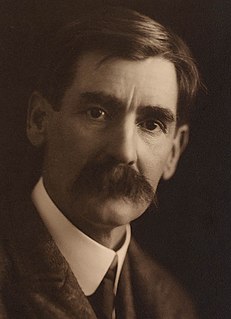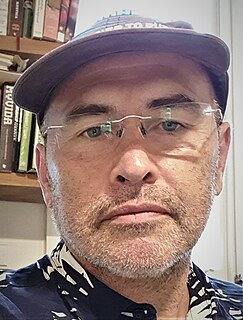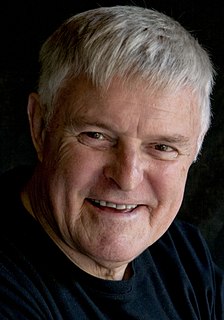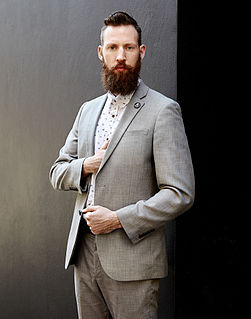This article is an autobiography or has been extensively edited by the subject or by someone connected to the subject.(February 2017) |
Paul Mitchell (born 1968) [1] is an author of five books in Melbourne.
This article is an autobiography or has been extensively edited by the subject or by someone connected to the subject.(February 2017) |
Paul Mitchell (born 1968) [1] is an author of five books in Melbourne.
His most recent book is the novel, We. Are. Family. , dealing with the generational effect of family violence. The Australian [2] said the novel "asks us if it is possible to escape the subjectivity of our pasts, or do the male voices in our heads sentence us to a lifetime of judgment by their standards? Ultimately, We. Are. Family. might be read as a tale of redemption and hope.” and The Age [3] said "Mitchell is a terse and observant writer, as alive to the particulars of Aussie idiom and experience as Tim Winton, but less showy . . . It’s hard to write about the thwarts and flaws of conventional masculinity without coming across as either too harsh or too sentimental. Mitchell succeeds in doing so."
Mitchell's 2014 poetry collection, Standard Variation (Walleah Press) gained a short-listing for the 2016 Adelaide Writers' Week John Bray Poetry Award,[ citation needed ], while his debut collection, Minorphysics (IP 2003), won the IP PIcks Award for an Unpublished Australian Poetry manuscript. [4] Mitchell has appeared at the Melbourne Writers Festival, Australian Short Story Festival and others, and he has won national awards for his short fiction. [5] [ failed verification ] His poetry, essays and stories have been published in newspapers, magazines and journals including The Age , The Sunday Age, Best Australian Stories and Poems, Meanjin, Griffith Review, Overland, ABC Religion and Ethics and The Big Issue.
Mitchell's 2015 play Ragdoll was a work of fiction that drew upon two Australian cases of patricide: Arthur Freeman throwing his child Darcy from Melbourne's Westgate Bridge, [6] and Robert Farquharson driving his three children into a dam near Winchelsea. The play, performed by Silas Aiton and directed by Debra Low, was staged at Melbourne's La Mama Theatre as part of the 2015 Melbourne Writer's Theatre/Hoi Polloy production of one-act plays called DarkLight. Helen Garner said of this work that it was "a challenging psychological and emotional exploration . . . a contribution to a desperately needed national conversation [that] will deepen and enrich it in very significant ways.”

Henry Archibald Hertzberg Lawson was an Australian writer and bush poet. Along with his contemporary Banjo Paterson, Lawson is among the best-known Australian poets and fiction writers of the colonial period and is often called Australia's "greatest short story writer".
![Helen Garner Writer (1942−[[Category:Errors reported by Module String]]String Module Error: Target string is empty)](https://upload.wikimedia.org/wikipedia/commons/thumb/1/15/Helen_Garner_at_Adelaide_Writer%27s_Week.jpg/281px-Helen_Garner_at_Adelaide_Writer%27s_Week.jpg)
Helen Garner is an Australian novelist, short-story writer, screenwriter and journalist. Garner's first novel, Monkey Grip, published in 1977, immediately established her as an original voice on the Australian literary scene–it is now widely considered a classic. She has a reputation for incorporating and adapting her personal experiences in her fiction, something that has brought her widespread attention, particularly with her novels, Monkey Grip and The Spare Room (2008).

Timothy John Winton is an Australian writer. He has written novels, children's books, non-fiction books, and short stories. In 1997, he was named a Living Treasure by the National Trust of Australia, and has won the Miles Franklin Award four times.

Australian literature is the written or literary work produced in the area or by the people of the Commonwealth of Australia and its preceding colonies. During its early Western history, Australia was a collection of British colonies, therefore, its recognised literary tradition begins with and is linked to the broader tradition of English literature. However, the narrative art of Australian writers has, since 1788, introduced the character of a new continent into literature—exploring such themes as Aboriginality, mateship, egalitarianism, democracy, national identity, migration, Australia's unique location and geography, the complexities of urban living, and "the beauty and the terror" of life in the Australian bush.

Ada Cambridge, later known as Ada Cross, was an English-born Australian writer. She wrote more than 25 works of fiction, three volumes of poetry and two autobiographical works. Many of her novels were serialised in Australian newspapers but never published in book form. While she was known to friends and family by her married name, Ada Cross, her newspaper readers knew her as A.C. She later reverted to her maiden name, Ada Cambridge, and that is how she is known today.

Dorothy Featherstone Porter was an Australian poet. She was a recipient of the Christopher Brennan Award for lifetime achievement in poetry.
Peter David Goldsworthy AM is an Australian writer and medical practitioner. He has won major awards for his short stories, poetry, novels, and opera libretti.
Robert Duncan Drewe is an Australian novelist, non-fiction and short story writer.
James Bradley is an Australian novelist and critic. Born in Adelaide, South Australia, he trained as a lawyer before becoming a writer.
Lily Brett is an Australian novelist, essayist and poet. She lived in North Carlton and then Elwood/Caulfield from 1948 to 1968, in London 1968–1971, Melbourne (1971–1989) and then moved permanently to New York City. In Australia she had an early career as a pop music journalist, including writing for music magazine Go-Set from May 1966 to September 1968. From 1979 she started writing poems, prose fiction and non-fiction. As a daughter of Holocaust survivors, her works include depictions of family life including living in Melbourne and New York. Four of her fictional novels are Things Could Be Worse (1990), Just Like That (1994), Too Many Men (2001) and You Gotta Have Balls (2005).

Paul Voermans is an Australian performer, community IT advocate, and writer of prose and poetry, whose work includes a number of novels. Published as science fiction, the novels contain elements of surrealism, horror, and humour. They have been compared to RA Lafferty and Douglas Adams.
Cate Kennedy is an Australian author based in Victoria.
Merlinda Bobis is a contemporary Filipina-Australian writer and academic.
Barry Dickins is a prolific Australian playwright, author, artist, actor, educator and journalist, probably best known for his historical dramas and his reminisces about growing up and living in working class Melbourne. His most well-known work is the award winning stage play Remember Ronald Ryan, a dramatization of the life and subsequent death of Ronald Ryan, the last man executed in Australia. He has also written dramas and comedies about other controversial figures such as poet Sylvia Plath, opera singer Joan Sutherland, criminal Squizzy Taylor, actor Frank Thring, playwright Oscar Wilde and artist Brett Whiteley.
Catherine Bateson is an Australian writer.

Gary Files is an Australian-Canadian actor, theatre director and radio writer who has worked in Australia, Canada and the United Kingdom. Resident in Australia since 1976, Files is noted for the accentual versatility of his radio-based voice acting.
Osamah Sami is an Australian stage and screen actor, writer, spoken word artist, and stand-up comedian of Iraqi origin. His critically acclaimed book Good Muslim Boy, was the winner of the 2016 NSW Premier's Literary Award. It was also Highly Commended at the Victorian Premier's Literary Awards that same year.

Tobias Alexander Edward Manderson-Galvin is an Australian actor, satirist, performance poet, and playwright.
Andy Kissane is a Melbourne-born, Sydney-based writer. He has written a number of poetry collections as well as short stories, novels and non-fiction.

Graeme C. Simsion is an Australian author, screenwriter, playwright and data modeller. Prior to becoming an author, Simsion was an information systems consultant, co-authoring the book Data Modelling Essentials, and worked in wine distribution.